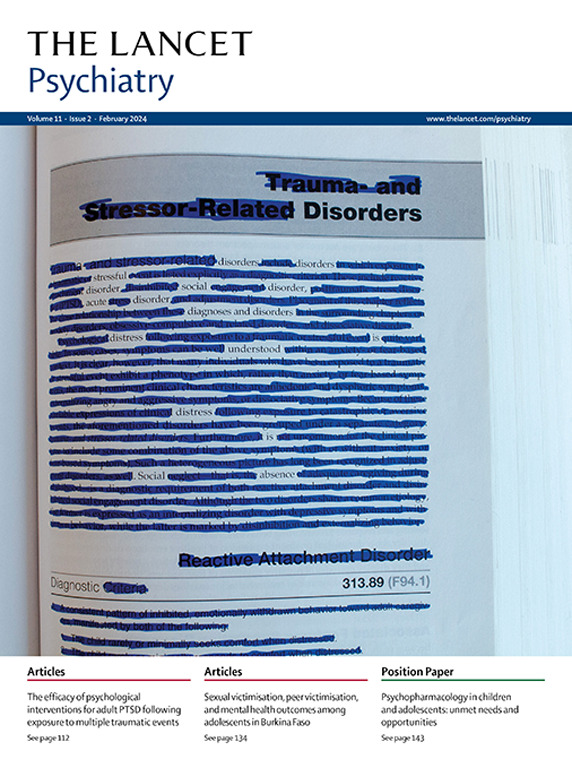使用真实世界数据确定主要精神疾病治疗结果的建议
IF 30.8
1区 医学
Q1 PSYCHIATRY
引用次数: 0
摘要
尽管真实世界数据中的信息可用于确定有助于治疗选择的因素,但目前尚无使用此类数据的指南。本综述旨在总结和评估使用真实世界数据时抗抑郁药、抗精神病药和心境稳定剂的治疗效果定义,并提出该领域的标准。鉴于目前尚无使用这些数据估算治疗结果的标准,因此治疗结果定义的差异性很大。我们针对现有数据的不同情况提出了建议,并强调了使用其他信息来源来验证替代措施的重要性,例如持续治疗、药物之间的转换或精神药物的多药合用。定义明确且经过验证的治疗结果测量方法如果能结合现实世界的数据,将有助于精准精神病学方法的发展,并为精神药物的监管决策提供支持。本文章由计算机程序翻译,如有差异,请以英文原文为准。
Recommendations for defining treatment outcomes in major psychiatric disorders using real-world data
Although information from real-world data can be used to identify factors that aid treatment choice, there are no guidelines for the use of such data. The aim of this Review is to summarise and evaluate definitions of treatment outcomes for antidepressants, antipsychotics, and mood stabilisers when using real-world data, and to suggest standards for the field. Given that no standards for the use of these data in estimating treatment outcomes exist, variability is high for treatment outcome definitions. We make recommendations for different scenarios of available data and highlight the importance of using other sources of information to validate proxy measures such as continued treatment, switching between medications, or polypharmacy of psychotropic medications. Well defined and validated treatment outcome measures that incorporate real-world data could facilitate the development of precision psychiatry approaches and support regulatory decision making regarding psychopharmacological agents.
求助全文
通过发布文献求助,成功后即可免费获取论文全文。
去求助
来源期刊

Lancet Psychiatry
PSYCHIATRY-
CiteScore
58.30
自引率
0.90%
发文量
0
期刊介绍:
The Lancet Psychiatry is a globally renowned and trusted resource for groundbreaking research in the field of psychiatry. We specialize in publishing original studies that contribute to transforming and shedding light on important aspects of psychiatric practice. Our comprehensive coverage extends to diverse topics including psychopharmacology, psychotherapy, and psychosocial approaches that address psychiatric disorders throughout the lifespan. We aim to channel innovative treatments and examine the biological research that forms the foundation of such advancements. Our journal also explores novel service delivery methods and promotes fresh perspectives on mental illness, emphasizing the significant contributions of social psychiatry.
 求助内容:
求助内容: 应助结果提醒方式:
应助结果提醒方式:


